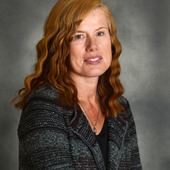The author Brigitte von Weiss of VON WEISS LAW OFFICE is an Easton MA estate planning and elder law attorney.
Website: vonweisslaw.com
What is the Home and Community Based Frail Elder Waiver (Waiver) Program?
Elders who are clinically in need of nursing home care and meet the asset limits detailed below qualify for the Home and Community Based Frail Elder Waiver (Waiver) Program.
The Waiver program is funded by MassHealth and provides the following services: skilled nursing, home health aide, housekeeping, laundry, transportation, grocery shopping, meal delivery, and the wander response system.
What are the income and asset rules for Waiver Program?
Under the Waiver program, there is no income limit. However, if the elder’s gross monthly income exceeds the threshold of 300% of the federal Supplemental Security Income (SSI) benefit ($2,163 as of 2014), he or she will be eligible for in-home services after meeting a deductible every six months. In other words, if an elder has gross monthly income of $2,163 or less in 2014, he or she gets to keep all of his or her income. In contrast, if the elder's gross monthly income is over $2,163 in 2014, some of his or her income must be used to pay for in-home services.
An unmarried elder can qualify for the Waiver program if he or she has $2,000 or less of countable assets. There is a long list of noncountable assets. Most notable, the home is noncountable as long as the equity value does not exceed $750,000. The asset limit for a couple is $3,000. However, an advantage of the Waiver program is that the assets belonging to the healthy spouse will not count toward the asset limit. Under MassHealth regulations, transfers between spouses do not affect eligibility. As a result, a commonly-used strategy for an unhealthy married elder is to transfer assets to his or her healthy spouse and thereby qualify for the Waiver program.
What is the Community Choices (Choices) Program?
For the Community Choices (Choices) Program, the elder must not only be clinically in need of nursing home care, but also must be at imminent risk of entering a facility if he or she does not receive these services at home. The Choices program will provide more hours of service to an elder than the Home and Community Based Frail Elder Waiver (Waiver) Program described above.
In order to receive services under the Choices program, an elder must be enrolled in or eligible for the Waiver program.
How Can an Elder Law Attorney Help?
There is nothing more important than avoiding nursing home care (not always possible, but if possible). Often the key to avoiding nursing home placement is in-home care. Elder law attorneys are an important resource as they know the ins and outs of the various programs available to assist elders in covering the cost of in-home care.
Elder law attorneys often assist elders in applying for in-home care programs. Notwithstanding asset limits of the various in-home care programs, there typically are methods for attaining eligibility even if the elder exceeds the limit.
Elders also need to be mindful of "estate recovery" as the Division of Medical Assistance is entitled to recover against the probate estate of any individual for whom MassHealth benefits were paid when he or she was age 55 or over. In order to do so, the agency must file a timely claim against the estate. Typically, there is no probate estate when an elder is on MassHealth as the asset limit is $2,000. However, many elders on MassHealth own a home as the home is noncountable as long as the equity value does not exceed $750,000.
There are steps that can be taken to protect the home from an estate recovery claim. An elder law attorney can assist by providing legal guidance regarding the home and MassHealth estate recovery.
Nothing in this blog should be considered legal advice as this is a complicated area of the law.
ADDITIONAL RESOURCES:
The Massachusetts Uniform Probate Code (MUPC)
Bristol County Family and Probate Court
Plymouth County Family and Probate Court
Norfolk County Family and Probate Court
National Academy of Elder Law Attorneys
Massachusetts Chapter of National Academy of Elder Law Attorneys
Massachusetts Area Agency's on Aging (AAA's)
and Aging Service Access Points (ASAP's)
RANDOLPH MA
National AutismCenter Randolph MA
Friends of the Randolph Dog Park
ESTATE PLANNING
Forbes magazine estate planning article
Kiplinger magazine estate planning article
USA newspaper estate planning article
American Bar Association's Estate Planning FAQ's
New York Times article on estate planning
US News article on estate planning
Fox Business article on estate planning
Los Angeles Times article on estate planning
COA'S
Bridgewater MA Office on Elder Affairs
East Bridgewater MA Council on Aging
North Attleboro MA Council On Aging
Plainville MA Council On Aging
West Bridgewater MA Council on Aging

Comments(0)